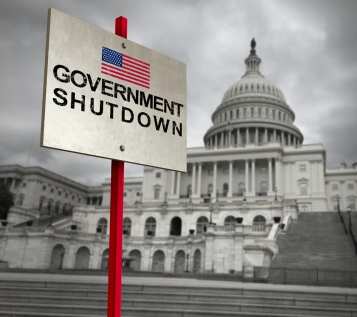
A government shutdown can leave many Americans wondering how they’ll survive financially. By some estimates, the December 2018 shutdown impacted 800,000 government employees, more than half of whom had to work without pay.
Meanwhile, most people aren’t financially prepared to miss just one paycheck. In 2022, 37% of people told The Federal Reserve they had no way to cover an emergency expense of just $400, and many others said they would have to pay using a credit card.
Fortunately, help is available. If you find your income impacted by a government shutdown, you can take these proactive steps to improve your financial position.
Contact your creditors immediately
Many creditors can offer valuable assistance to their customers in times of need. But you’ll have to contact them and ask for help, and the sooner you ask the better.
If you reach out to your creditor before missing a debt payment—including payments on credit cards, car loans, mortgages and student loans—and inform them of your situation, you’re more likely to qualify for an assistance program, avoid costly late fees and prevent damage to your credit.
Each creditor offers something different, but in response to the 2018 shutdown many of the nation’s largest banks offered special programs for federal employees. For example, Bank of America, Chase, Navy Federal Credit Union and Wells Fargo all offered fee refunds or waivers, loan modifications and repayment plans.
Switch to an emergency budget
When times are tough, you’ll need to get your household on a bare-bones budget ASAP. By doing so, you can better ensure you put whatever cash you have toward necessities, including shelter, food, utilities, transportation and medical needs.
Here are a few ways to cut back on expenses quickly:
- Pause or cancel monthly subscriptions like your gym membership.
- Review your financial statements to see what else you can reduce or eliminate.
- Ask your utility companies (including your cell and wifi provider) about income-based payment options or other help.
You may also want to find ways to bring in extra cash, like by renting out a room, selling old valuables or taking on a side job.
Identify community resources
Local charities, nonprofits and commercial businesses have a history of pitching in to provide support during emergencies. Check to see which agencies in your city, county or beyond are offering discounts, free goods and services or other support.
Get professional assistance from a nonprofit
Instead of going it alone during a furlough, get help from a financial professional. A nonprofit credit counselor can review your budget and debt, give you personalized advice and connect you with resources.
To schedule an appointment, call at 800-388-2227 or contact an NFCC member agency online.